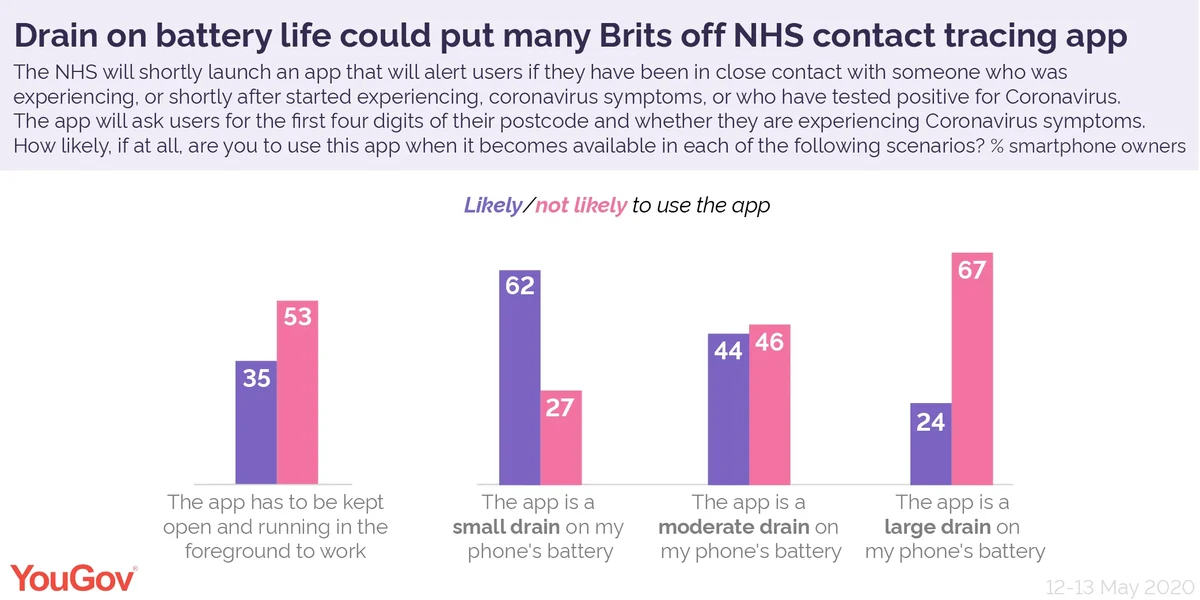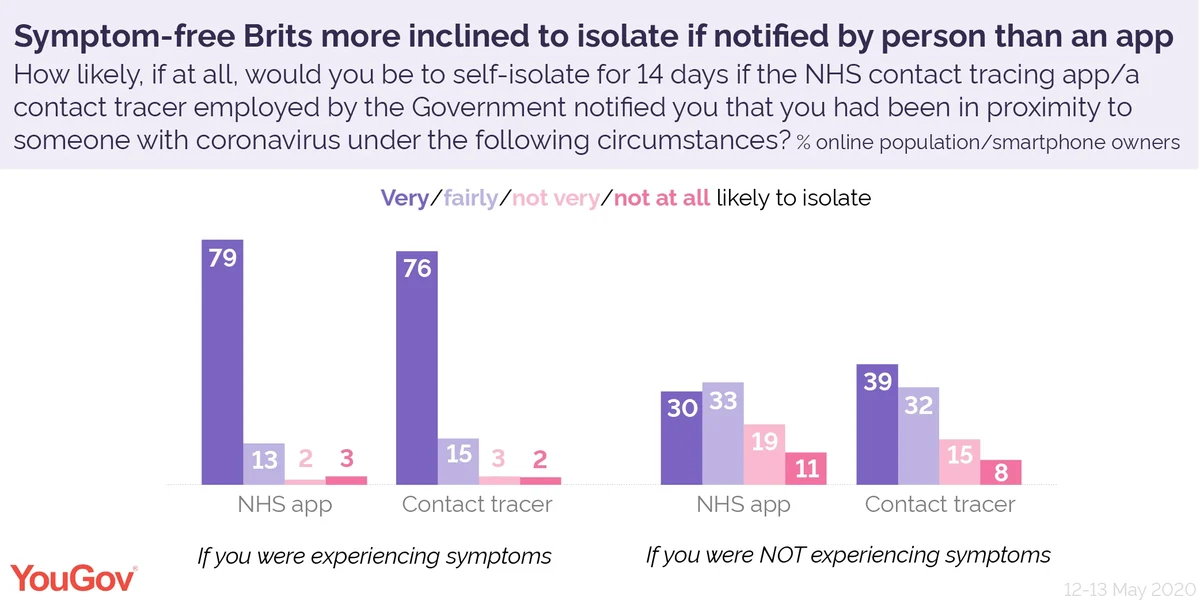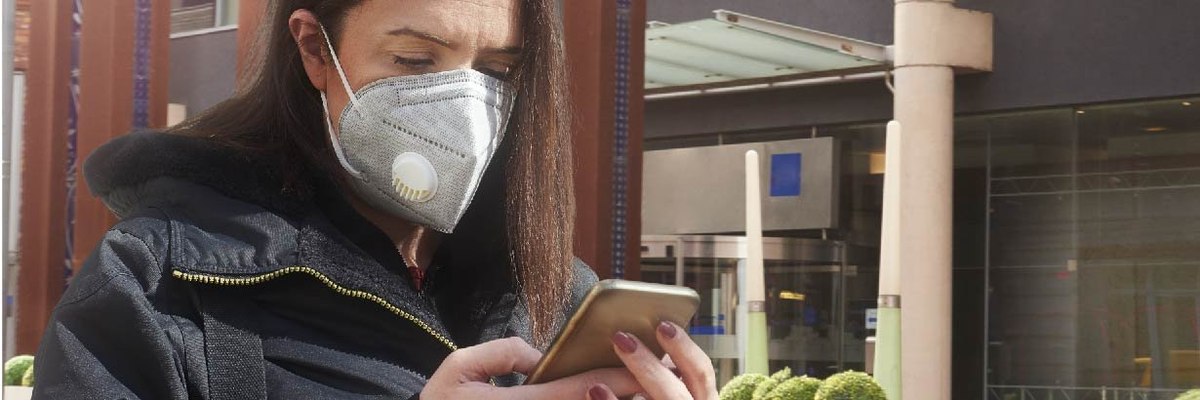A plurality of smartphone owners (46%) are unlikely to use the NHS coronavirus contact tracing app if it puts even a ‘moderate’ drain on their battery
The success of the NHS contact tracing app, which is reportedly being rolled out next week, will depend on its impact on battery life, new YouGov research shows.
Over a quarter of smartphone owners (27%) report they’re unlikely to use the app if it puts even a small drain on their battery life. If the impact is moderate, this jumps to a plurality of 46%. And should it significantly reduce the battery life, this figure increases to 67%.

About half of smartphone owners (53%) also say they are unlikely to use the NHS app if it has to be kept open and running in the foreground.
The app’s trial on the Isle of Wight revealed teething problems such as reducing battery life, incompatibility with phones older than three years and false alerts. The Ministry of Health insists that despite this they’re pleased with how the app is progressing.
Contact tracers may have more luck in convincing people without symptoms to isolate
Generally Brits say they would isolate if they were experiencing symptoms and the NHS app (92% of smartphone owners) or a contact tracer (91% of the online population) told them they had been close to someone with the virus.
The more difficult task will be to convince people who are not experiencing symptoms that they should isolate themselves for two weeks. In this instance, contact tracers are more likely to be able to persuade Brits to comply.

Three in ten smartphone owners (30%) would be unlikely to comply without experiencing symptoms if the NHS app told them to isolate. If a contact tracer conveyed the same message, however, a lower figure (23% of the online population) say they would probably not isolate.
People grouped in social grade C2DE, which includes manual workers, are less willing to isolate than ABC1s, who are often professionals, in all instances we surveyed on.
Among smartphone owners, 34% of C2DEs versus 27% of ABC1s say they would be unlikely to comply without symptoms if notified by the NHS app to isolate. If a contact tracer were to get in touch, 26% of C2DEs and 20% of ABC1s would be unlikely to isolate without symptoms.
The UK app takes a self-diagnosis approach, which some critics say is vulnerable to abuse. Users fill in a questionnaire and if the symptoms match coronavirus, the app notifies people who’ve been within 6ft of the person for at least 15 minutes to isolate.
This approach differs from models in other countries. In Germany, people who test positive for coronavirus will be given a verification code that they type into their Corona-Warn-App, which then anonymously notifies other users.







